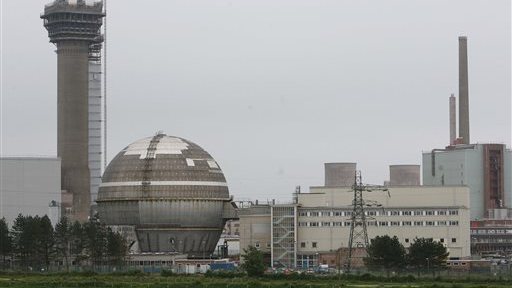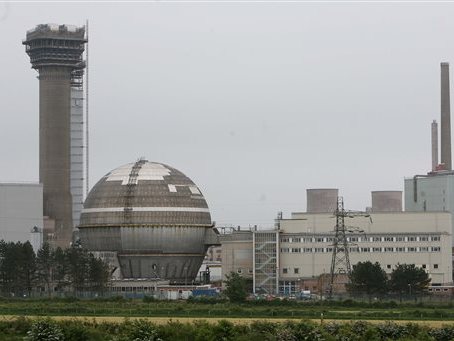
LONDON (AP) — Elevated radiation levels detected Friday at the Sellafield nuclear reprocessing plant in northwestern England were caused by naturally occurring background radon, not by any faults at the aging plant, the operating company said.
Only essential workers were asked to report for work as safety teams worked to pinpoint the cause of the elevated radiation, which was reported on one monitor in the northern end of the sprawling site — the largest nuclear site in Europe.
Sellafield Ltd. said its on-site monitors detected unusual activity overnight, leading it to reduce staffing levels Friday morning as a precaution.
“Following investigation and analysis, we can now confirm these levels to be naturally occurring background radon,” the company said.
The plant was never shut down and there was no evacuation. The company said there had been no risk to public safety.
Nuclear reprocessing involves separating uranium and plutonium from nuclear waste for reuse as fuel, and treating the waste for storage. Reprocessing has taken place at Sellafield for more than 50 years.
The complex has long been targeted by anti-nuclear campaigners who say there is a high danger of a serious nuclear accident and that the site is a prime target for terrorists. They have pointed to a number of leaks and other incidents there over the years.
It was the subject of a long-running legal dispute between Britain and Ireland, which feared that radioactive waste from Sellafield could be polluting the Irish Sea.
The government has announced that it wants to build a new nuclear reactor at Sellafield by 2025.


